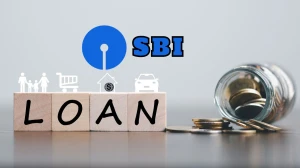
How Does the Fed's Interest Rate Pause Affect Mortgage Rates?
Fed doesn't directly set mortgage rates, but its decisions may affect bank lending fees, impacting mortgage rates for homebuyers.
by P Nandhini
Updated Apr 18, 2024
On This Page
How Does the Fed's Interest Rate Pause Affect Mortgage Rates?
When the Federal Reserve decides to stop raising or lowering its interest rate, it has a big impact on mortgage rates. While the Federal Reserve doesn’t directly set mortgage rates, its decisions do affect banks’ lending fees, including mortgage rates.
When the Federal Reserve pauses raising or lowering interest rates, mortgage rates will stabilize for a while. This pause can be good news for people looking to buy homes because they won’t have to pay higher mortgage rates right away.
However, it’s important to remember that mortgage rates could change in the future based on the Federal Reserve’s next steps. It’s like taking a break from worrying about higher mortgage rates but keeping an eye on potential changes later on.
Current Mortgage Rates for April 2024
The Annual Percentage Rate (APR) for a 30-year fixed mortgage is about 6.56%. If you were to take out a home loan, you would have to pay back the loan along with interest at the average rate.
For example, if you took a $696,000 home loan at this rate over 30 years (80% of the property value of $870,000), your monthly payment would amount to nearly $4,342 per year. It's important to note that these rates can vary depending on factors like the type of mortgage you select, your credit score, and the credit amount.
Furthermore, you might have to pay fees associated with getting the loan, which can add to the overall cost. So, you have to compare rates from various lenders to discover the best choice for your financial situation when considering a mortgage.
How to Find the Best Mortgage Rate Now?
- Take your time to look into various lenders and mortgage products. Discover the most favorable choices for you by seeing things like interest rates, terms, and fees.
- A higher credit score often implies lower interest rates. Pay off any outstanding debts and correct any credit report mistakes to improve your credit score before mortgage application.
- A large down payment reduces your loan-to-value (LTV) ratio, which makes you more appealing to banks and leads to better mortgage rates and terms.
- Mortgage points help you to pay upfront to lower your interest rate over the life of the loan. Think about whether paying points makes sense for your plans and how long you plan to stay in the home.
- Do not settle for the first mortgage offer you get. Get quotes from different lenders and don't hesitate to negotiate or ask about discounts or promotions. You can find the best mortgage rate for your needs by comparing offers.




